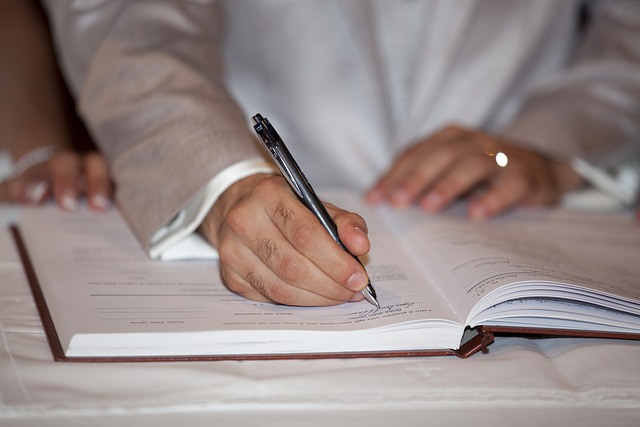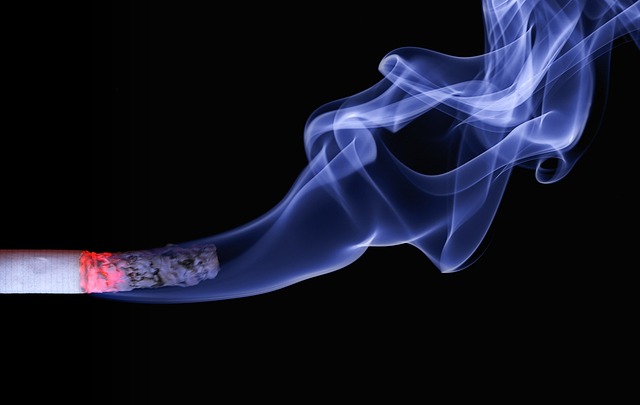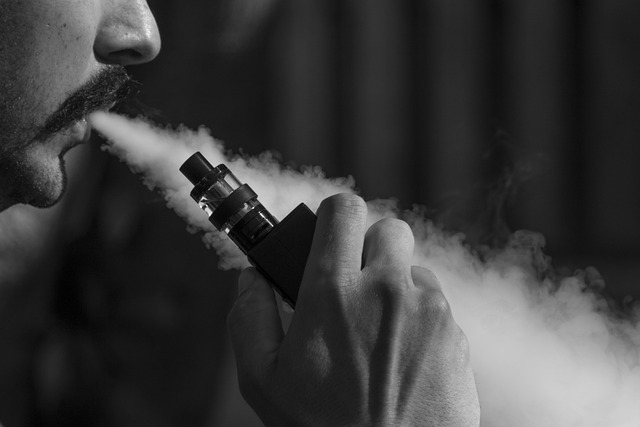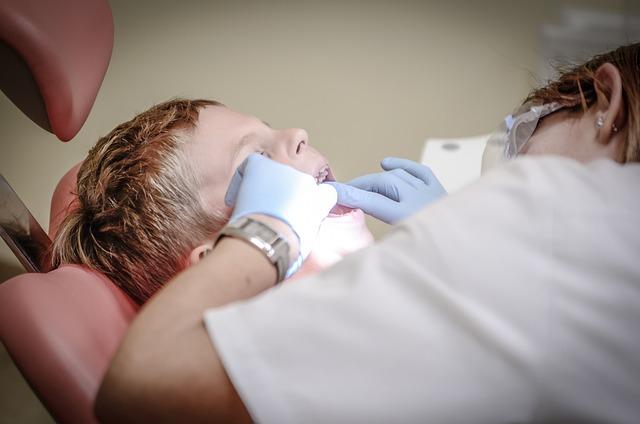How to Smoke After Wisdom Teeth Removal: Expert Tips
Congratulations! You’ve successfully bid farewell to those pesky wisdom teeth, but now you find yourself wondering, “Can I indulge in a smoke?” We understand the importance of maintaining your daily routine, even after a wisdom teeth removal surgery. That’s why we’re here to provide you with expert tips on how to smoke after wisdom teeth removal. With our confident and knowledgeable guidance, you can carry on with your beloved smoking habit while ensuring a smooth and speedy recovery. So, sit back, relax, and let us shed light on this burning question.
1. Preparing for post-wisdom teeth removal smoking: A comprehensive guide
After getting your wisdom teeth removed, it is crucial to take proper care of your mouth to ensure a smooth recovery process. One important aspect to consider is avoiding smoking, as it can significantly impede the healing process and increase the risk of complications. Here is a comprehensive guide to help you prepare for post-wisdom teeth removal smoking:
- Understand the risks: Smoking after wisdom teeth removal can lead to a range of complications, including dry socket, delayed healing, increased pain, and infection. It is important to be aware of these risks and take necessary precautions.
- Quit before the procedure: If you are a regular smoker, it is highly recommended to quit smoking before the wisdom teeth removal surgery. This will help reduce the chances of complications and promote faster healing.
- Avoid smoking for at least 48 hours: During the initial 48 hours after the surgery, it is crucial to abstain from smoking completely. This period is critical for blood clot formation and the beginning of the healing process.
- Be mindful of nicotine patches and gum: While nicotine patches or gum may seem like an alternative, they can still hinder the healing process. Nicotine restricts blood vessels and reduces blood flow, which is essential for proper healing.
- Manage cravings: It is natural to experience nicotine cravings after wisdom teeth removal, but it is important to resist the temptation. Engage in activities that distract you, such as reading, listening to music, or spending time with friends and family.
- Consult your dentist: If you are finding it difficult to quit smoking or manage cravings, consult your dentist or oral surgeon. They can provide additional guidance and support to help you through this crucial healing period.

2. Understanding the risks: Potential complications of smoking after wisdom teeth removal
After having your wisdom teeth removed, it is crucial to understand the potential complications that smoking can cause during the healing process. Smoking after this procedure can significantly increase the risk of various complications and delay the recovery time. Here are some of the risks you should be aware of:
Infection: Smoking can introduce harmful bacteria and toxins into the healing sockets, increasing the chances of infection. This can prolong the healing process and require additional treatment.
Dry socket: This painful condition occurs when the blood clot that forms after extraction becomes dislodged or dissolves prematurely. Smoking can interfere with the formation of a stable blood clot, making you more susceptible to developing a dry socket.
Delayed healing: Smoking hampers the body’s natural healing process by constricting the blood vessels and reducing blood flow to the surgical site. This can lead to delayed healing, increased pain, and prolonged recovery time.
Impaired immune response: The chemicals in cigarettes can weaken the immune system, making it harder for your body to fight off infections and heal properly. This puts you at a higher risk for complications post-surgery.
Increased pain and discomfort: Smoking irritates the surgical site, leading to increased pain and discomfort. The heat and chemicals from smoking can also cause inflammation and delay the healing of the surrounding tissues.

3. Expert advice: Best practices for smoking after wisdom teeth extraction
After undergoing wisdom teeth extraction, it is crucial to follow the best practices for smoking to ensure a smooth and speedy recovery. Here are some expert tips to help you navigate this delicate period:
- Avoid smoking for at least 48-72 hours: It is strongly advised to refrain from smoking for the first 48-72 hours after the extraction. Smoking immediately after the procedure can dislodge blood clots, increase the risk of infection, and hinder the healing process.
- Choose smokeless alternatives: If you are unable to resist the urge to smoke, consider switching to smokeless alternatives such as nicotine patches or gum. These options can help satisfy your cravings without the negative impacts of smoking on your healing gums.
- Maintain proper oral hygiene: During the recovery period, it is crucial to maintain good oral hygiene to prevent any complications. Gently brush your teeth, tongue, and gums twice daily with a soft-bristled toothbrush. Rinse your mouth with warm saltwater after every meal to keep the extraction site clean and reduce the risk of infection.
Remember, the healing process after wisdom teeth extraction is vital, and smoking can significantly impede this process. To ensure a successful recovery, it is best to follow these expert recommendations. Your oral health is of utmost importance, so take care and allow your body to heal properly.

4. Alternative options: Exploring smokeless alternatives during the healing process
During the healing process, it is important to consider alternative options to smoking in order to promote a healthier recovery. Smokeless alternatives provide a way to satisfy nicotine cravings without the harmful effects of traditional smoking. Here are some smokeless alternatives to explore:
- Nicotine patches: These small adhesive patches are applied to the skin and release a controlled amount of nicotine, helping to reduce withdrawal symptoms.
- Nicotine gum: Chewing nicotine gum can help manage cravings by delivering a controlled dose of nicotine. It also provides a more oral fixation, which can be helpful during the healing process.
- Nicotine lozenges: Similar to gum, nicotine lozenges dissolve in the mouth and release nicotine, providing a discreet and convenient option for those in the healing process.
Additionally, there are non-nicotine alternatives available that can help break the habit of smoking without relying on nicotine replacement therapy:
- Herbal cigarettes: These cigarettes are made from herbs and do not contain tobacco or nicotine. They can provide a similar smoking experience without the harmful effects of traditional cigarettes.
- E-cigarettes: Electronic cigarettes, or e-cigarettes, deliver nicotine in vapor form. While they still contain nicotine, they eliminate the harmful chemicals found in traditional cigarettes.
- Hypnosis: Some individuals find success in quitting smoking through hypnosis, where a trained professional helps reprogram the subconscious mind to eliminate the desire to smoke.
Exploring these smokeless alternatives can provide a range of options to support the healing process without compromising on nicotine cravings or resorting to traditional smoking methods.

5. Ensuring a smooth recovery: Essential tips for minimizing discomfort while smoking post-surgery
Smoking after surgery can significantly hinder the healing process and lead to complications. However, we understand that quitting smoking altogether may not be an easy task for everyone. If you choose to smoke post-surgery, it is crucial to follow these essential tips to minimize discomfort and promote a smooth recovery:
- Consult your healthcare provider: Before lighting up, make sure to discuss your smoking habits with your healthcare provider. They can provide personalized advice and guidance based on your specific surgery and overall health.
- Opt for filtered cigarettes: If you cannot quit smoking entirely, consider using filtered cigarettes. These can help reduce the amount of harmful substances you inhale, although they do not eliminate all risks associated with smoking.
- Smoke in moderation: Limit your smoking to the absolute minimum. Smoking less frequently can help decrease the negative impact on your healing process and reduce discomfort.
- Choose a well-ventilated area: Always smoke in well-ventilated spaces to minimize exposure to secondhand smoke and facilitate better air circulation.
Remember, smoking after surgery can increase the risk of infections, slow down the healing process, and compromise your overall recovery. It is essential to consider quitting smoking entirely or reducing your smoking habit to ensure a smoother and quicker recovery. Always consult with your healthcare provider for personalized advice and support throughout your healing journey.
6. Maintaining oral hygiene: Precautions and techniques for smoking after wisdom teeth removal
After undergoing wisdom teeth removal, it is important to take certain precautions and follow specific techniques to maintain oral hygiene, especially if you are a smoker. Smoking can hinder the healing process and increase the risk of complications such as dry socket. Here are some essential tips to help you navigate smoking after wisdom teeth removal:
- Avoid smoking for at least 48 hours: It is crucial to refrain from smoking for the first 48 hours after the extraction to allow the blood clot to form and promote proper healing. Smoking during this period can dislodge the blood clot and delay the healing process.
- Choose alternative nicotine products: If you cannot abstain from nicotine entirely, consider using nicotine patches or gum as temporary alternatives. These can help satisfy your cravings without the negative effects of smoking on your healing extraction sites.
- Rinse your mouth after smoking: After smoking, gently rinse your mouth with warm saltwater to remove any residue or harmful substances that may have accumulated. This helps reduce the risk of infection and promotes a clean oral environment.
Additionally, it is important to maintain good oral hygiene practices to minimize the risk of complications. Here are some techniques to follow:
- Brush gently: Use a soft-bristled toothbrush and brush your teeth gently, avoiding the extraction sites. Brushing too vigorously can irritate the area and cause bleeding.
- Rinse with saltwater: Rinse your mouth with warm saltwater at least 2-3 times a day, especially after meals. This helps keep the extraction sites clean and reduces the risk of infection.
- Avoid tobacco products: Apart from smoking, it is important to avoid all tobacco products during the healing process. Chewing tobacco or using snuff can also disrupt the healing process and increase the risk of complications.
7. Seeking professional guidance: Consulting your dentist or oral surgeon for personalized recommendations
When it comes to oral health, seeking professional guidance is crucial for personalized recommendations. Consulting your dentist or oral surgeon can provide you with expert advice tailored to your specific needs. These professionals have the knowledge and experience to assess your oral health and recommend the best course of action.
During your consultation, your dentist or oral surgeon will conduct a thorough examination of your mouth, teeth, and gums. They will take into consideration your medical history, lifestyle factors, and any specific concerns you may have. Based on this evaluation, they will provide you with personalized recommendations to address any existing dental issues and help you maintain optimal oral health. Whether it’s advice on proper oral hygiene practices, preventive care, or treatment options for specific conditions, their expertise will guide you towards making informed decisions for your dental well-being.
Frequently Asked Questions
Q: Can I smoke after getting my wisdom teeth removed?
A: It is strongly advised to avoid smoking after wisdom teeth removal in order to promote proper healing and minimize complications.
Q: Why is it recommended not to smoke after wisdom teeth removal?
A: Smoking can significantly hinder the healing process and increase the risk of complications such as dry socket, infection, and delayed recovery.
Q: How does smoking affect the healing process?
A: Smoking constricts blood vessels and reduces blood flow, which is crucial for the healing process. It also introduces harmful chemicals and toxins into the extraction site, further impeding the healing process.
Q: What is dry socket, and why is it a concern for smokers?
A: Dry socket occurs when the blood clot that forms in the extraction site becomes dislodged or dissolves prematurely. Smoking can increase the likelihood of developing dry socket, leading to intense pain and potential infection.
Q: How long should I wait before smoking after wisdom teeth removal?
A: It is recommended to abstain from smoking for at least 72 hours following the surgery. However, it is ideal to quit smoking altogether during the entire healing period, which can take up to two weeks.
Q: Are there any alternatives to smoking that I can consider after wisdom teeth removal?
A: Yes, there are several alternatives to smoking that can help you avoid the risks and promote healing. These include nicotine patches, nicotine gum, or exploring temporary cessation options such as vaping or nicotine-free alternatives.
Q: Can I use a hookah, vape, or e-cigarette instead of smoking traditional cigarettes?
A: While these alternatives may seem less harmful, they still pose similar risks as smoking traditional cigarettes. The suction created during inhaling can dislodge the blood clot and hinder the healing process. It is best to avoid these alternatives as well.
Q: What other tips can help me through the recovery process?
A: Along with avoiding smoking, it is important to follow your dentist’s instructions for post-operative care. This includes maintaining good oral hygiene, eating soft foods, avoiding vigorous rinsing, and taking prescribed medications as directed. Applying ice packs to the face can also help reduce swelling and discomfort.
Q: What should I do if I experience complications or prolonged pain after smoking following wisdom teeth removal?
A: If you experience any complications or prolonged pain after smoking, it is crucial to contact your dentist immediately. They will be able to assess your condition and provide appropriate guidance and treatment to ensure proper healing.
In Retrospect
In conclusion, smoking after wisdom teeth removal requires careful consideration and adherence to expert tips. Remember, it is crucial to prioritize your oral health and allow proper healing. Here are the key takeaways to keep in mind:
1. Wait at least 72 hours before smoking: Give your mouth ample time to recover and reduce the risk of complications.
2. Avoid smoking altogether if possible: Smoking, especially cigarettes, can hinder the healing process and increase the chances of infection and dry socket.
3. Opt for alternative methods: If you must satisfy your nicotine cravings, explore alternatives like nicotine patches or gum to minimize the harmful effects on your oral health.
4. Practice good oral hygiene: Maintain a diligent oral care routine, including gentle brushing, rinsing with saltwater, and avoiding tobacco or nicotine products near the surgical site.
5. Consult your dentist or oral surgeon: Seek professional advice and guidance tailored to your specific situation. They can provide personalized recommendations and monitor your healing progress.
By following these expert tips, you can ensure a smoother recovery and reduce the risks associated with smoking after wisdom teeth removal. Remember, your oral health should always take precedence.






